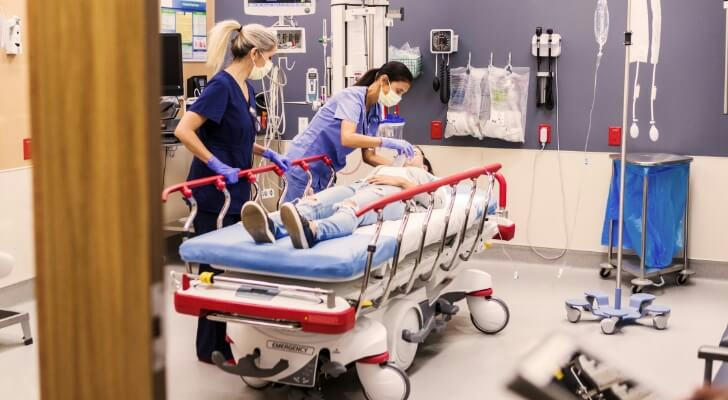Enhancing Emergency Nursing Skills: A Comprehensive Professional Guide
Emergency nurses are pivotal in delivering critical care in times of need. On the front lines of healthcare, they must be quick, decisive, and knowledgeable, adapting seamlessly to rapidly changing circumstances. To maintain and improve their efficacy, continuous skill enhancement is essential. This guide outlines strategies that emergency nurses can adopt to bolster their professional capabilities through structured training, practical simulations, technological applications, and personal development in both psychological resilience and communication.

1. Importance of Continuous Professional Training
1.1 Staying Current
The healthcare industry evolves continuously, with advancements in medical research and technology transforming practices at a rapid pace. For emergency nurses, keeping abreast of these changes is crucial for delivering effective care. Regular training helps bridge the gap between current capabilities and the cutting-edge practices necessary for modern emergency medicine.
1.2 Essential Training Courses
Critical courses that should be on every emergency nurse's radar include:
Cardiopulmonary Resuscitation (CPR): Mastery of CPR is fundamental, enabling nurses to provide immediate, life-saving measures for cardiac arrest victims.
Advanced Cardiac Life Support (ACLS): This course extends beyond CPR, equipping nurses with skills in managing severe cardiovascular emergencies through medication, airway management, and understanding rhythm disturbances.
Pediatric Advanced Life Support (PALS): Tailored to handling emergencies in children, it prepares nurses to respond appropriately and effectively to pediatric emergencies.
1.3 Real-Life Case Study: CPR Success
In Los Angeles, an emergency nurse named Sarah was on shift when a middle-aged man was rushed in with sudden cardiac arrest. Thanks to her recent CPR and ACLS training, she recognized the symptoms immediately and initiated CPR while the team prepared the defibrillator. The swift response and effective technique resulted in the patient's subsequent recovery and discharge, highlighting the critical importance of continuous skills training.
2. Practical Simulations and Hands-on Drills
2.1 Benefits of Simulation Training
Simulation training plays a vital role in preparing nurses for the unpredictable nature of emergency care. High-fidelity manikins and virtual reality scenarios provide a risk-free environment where nurses can practice and refine their skills under life-like conditions. These simulations are designed to enhance critical thinking, improve technical skills, and increase confidence in handling emergencies.
2.2 Enhancing Team Collaboration
Emergency medicine relies heavily on teamwork. Simulations often involve multidisciplinary teams, allowing nurses to practice collaborating with doctors, technicians, and other nurses. This interdisciplinary approach emphasizes the importance of communication, timing, and mutual support, reducing errors and improving patient outcomes during actual emergencies.
Real-Life Example: Team Simulation
At a leading hospital in Chicago, a simulation involving a massive emergency scenario was conducted. The exercise replayed an event similar to a past mass casualty incident and required participants to manage multiple trauma patients simultaneously. The feedback from this exercise revealed crucial improvements in the team's coordination and communication strategies, proving invaluable during a subsequent real-life multi-vehicle accident emergency response.

3. Leveraging Advanced Technology
3.1 Adoption and Mastery of Medical Technology
Technological proficiency is increasingly important in modern healthcare. Devices like Automated External Defibrillators (AEDs) and portable ultrasound machines are critical during emergency situations. Nurses must be proficient not only in using these tools but also in interpreting the data they provide swiftly to make critical decisions.
Real-Life Case: AED Usage
In a New York subway station, a commuter collapsed due to sudden cardiac arrest. Maria, an off-duty emergency nurse nearby, used her training in AED operation to assist in resuscitating the individual until EMS arrived. Her effective use of technology, even outside the hospital setting, underscores the critical role nurses play in public healthcare emergencies.
3.2 Integration of Data Analytics
Data analytics is a burgeoning field in healthcare that can enhance emergency response procedures. By understanding trends and patterns in patient data, nurses can predict health crises and optimize treatment protocols. Training in this area empowers nurses to utilize hospital data analytic tools efficiently, improving both individual patient outcomes and broader healthcare strategies.
4. Building Psychological Resilience and Adaptability
4.1 Managing Stress and Maintaining Composure
Emergency nursing is inherently stressful, often requiring split-second decisions that can impact lives. Developing strong stress management techniques is essential. Practices such as mindfulness, meditation, and breathing exercises have been shown to reduce anxiety and enhance focus.
Real-Life Insight: Stress Management
A veteran nurse at a trauma center in Boston shared how participation in routine stress reduction workshops helped her maintain composure during a high-stakes emergency evacuation following a fire incident. Her ability to stay calm and guide others effectively prevented panic and ensured a smooth operation.
4.2 Focusing on Detail and Precision
Accuracy in task execution is non-negotiable in emergency care. Attention to detail can prevent errors in medication administration, patient identification, and procedural compliance. Regular self-assessment and peer reviews can help nurses maintain high standards and identify habits or practices in need of adjustment.
5. Continuous Learning and Self-reflection
5.1 Sharing and Absorbing Experiences
Experience is an invaluable teacher. Regularly participating in debriefings and sharing sessions allows nurses to learn from peers, gaining insights from a diverse range of experiences. This ongoing exchange fosters an environment of continual improvement and collective wisdom.
5.2 Engaging in Professional Development Opportunities
Conferences, seminars, and online webinars offer fresh perspectives and introduce nurses to innovative techniques and technologies. They provide platforms for networking, opening doors to collaborative opportunities that can lead to professional growth. Engaging with the broader medical community also provides a forum to exchange ideas and drive forward the development of best practices in emergency care.

6. Fostering Humanitarian Care and Communication Skills
6.1 Communicating with Patients and Families
In emergencies, the ability to communicate effectively and empathetically with patients and their families is as important as technical skill. Nurses must convey critical information clearly while providing reassurance, helping to alleviate stress and confusion in tense situations.
Real-Life Example: Effective Communication
In a Florida hospital, nurse Jessica handled a situation where a critical patient's family members were distraught and confused. By taking the time to explain the medical processes and listen to their concerns, she helped ease their anxiety, making them feel involved and informed, which significantly improved their experience.
6.2 Providing Emotional Support
Nurses are often a comforting presence in challenging times. Providing emotional support can be as crucial as physical care in promoting recovery. Small gestures, active listening, and showing empathy can significantly impact patient experiences and outcomes, making compassionate care an integral part of emergency nursing.
Conclusion
Enhancing skills in emergency nursing is not just about mastering technical procedures; it involves a holistic approach that integrates continuous education, practical experience, technological proficiency, and personal development. By committing to these areas, emergency nurses can increase their preparedness, adaptability, and effectiveness, ultimately improving patient care and outcomes. As they navigate the unpredictable and demanding arena of emergency medicine, their dedication to professional growth ensures they remain vital contributors to healthcare, saving lives with expertise, diligence, and compassion.
